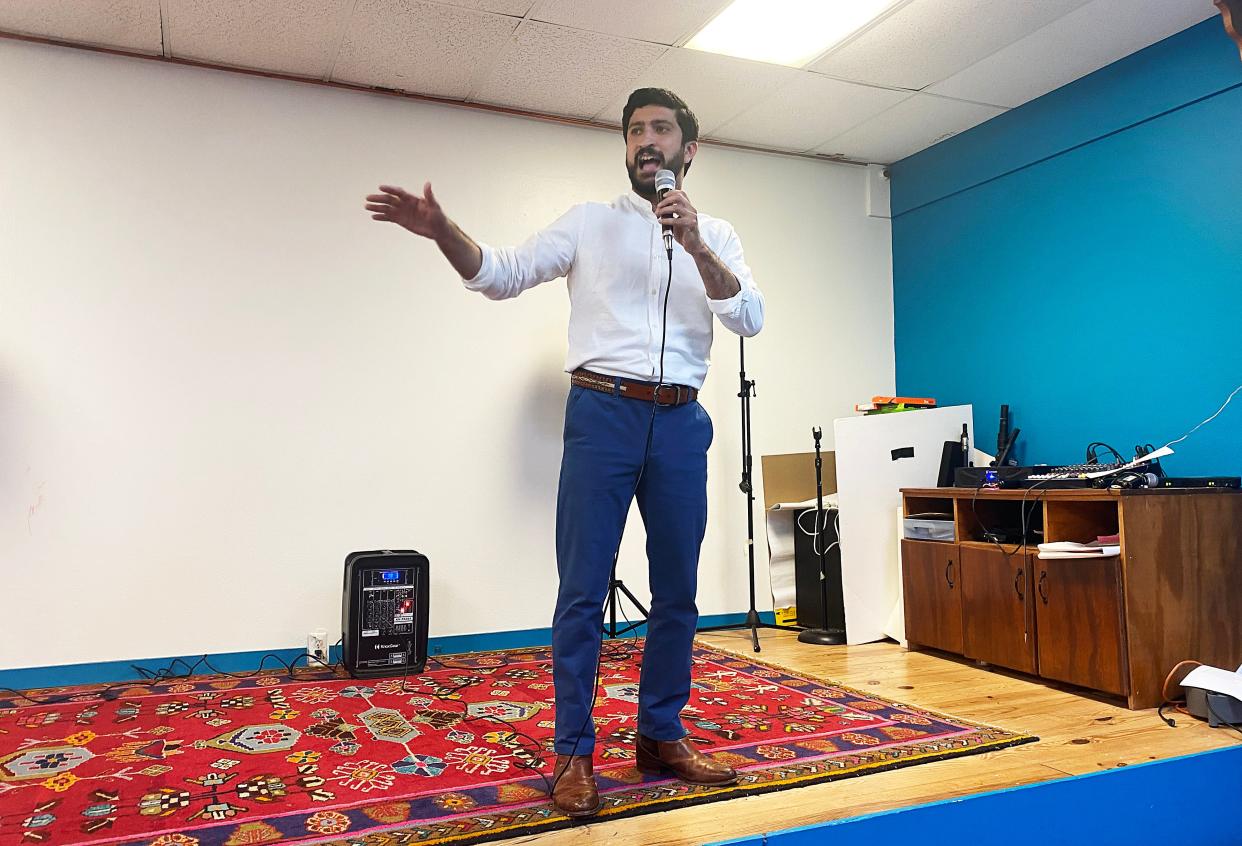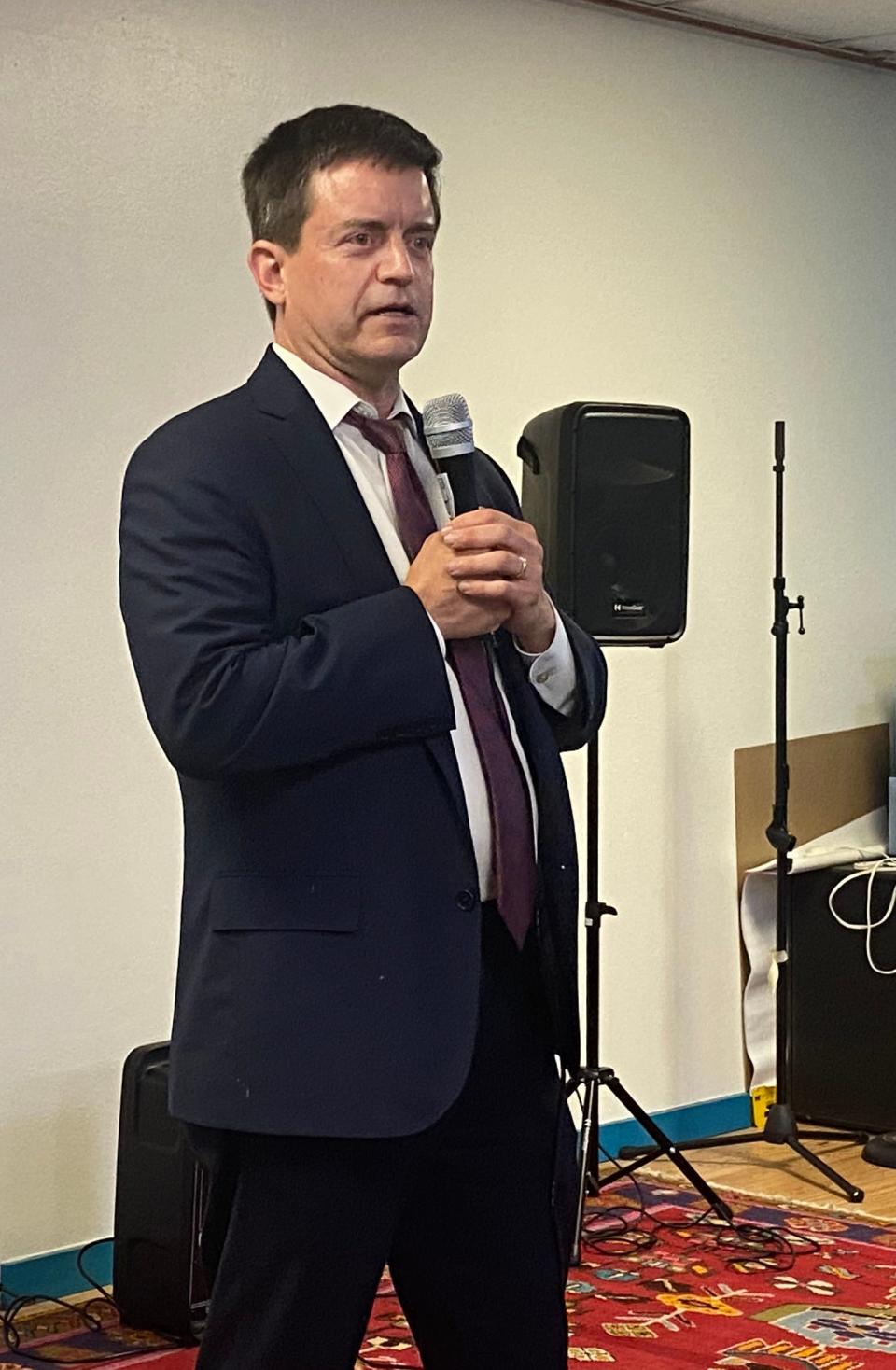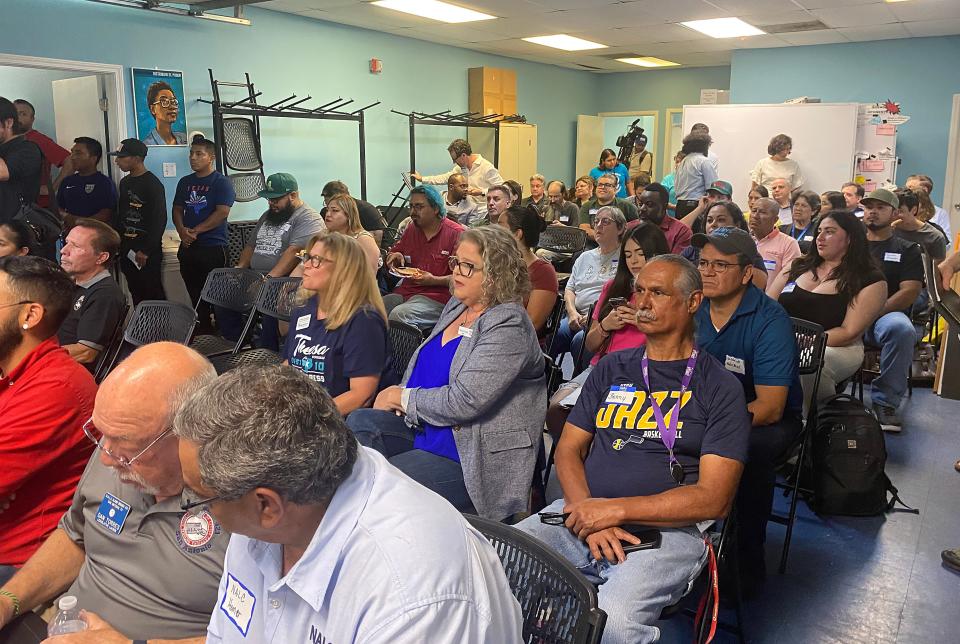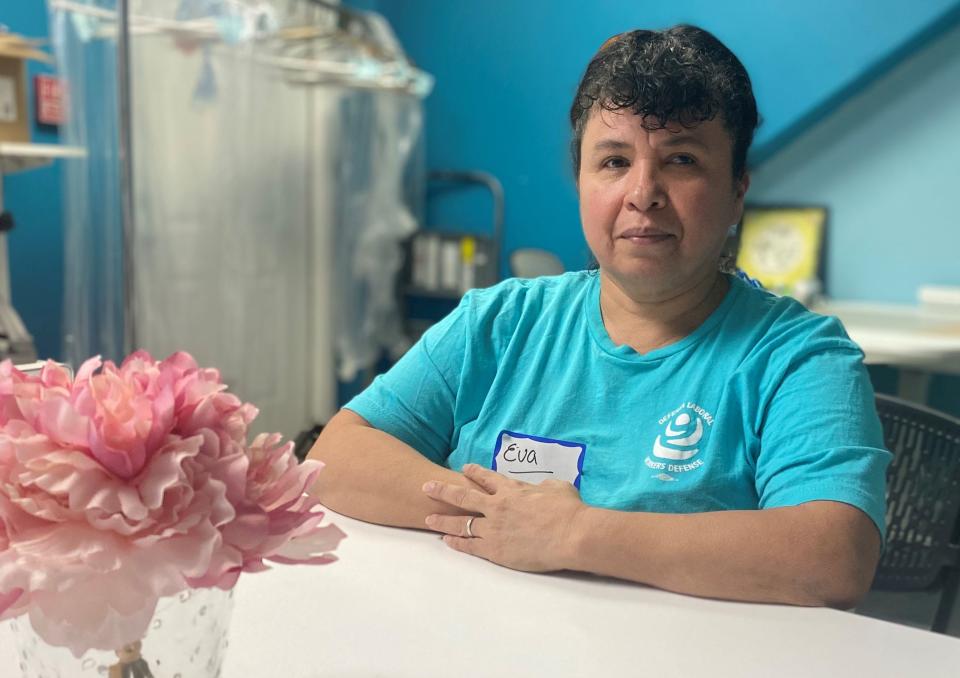Casar says OSHA will propose federal rule making outdoor workers safer from heat

- Oops!Something went wrong.Please try again later.
- Oops!Something went wrong.Please try again later.
Just over 12 years ago, José Lainez, a construction worker and Honduran immigrant, died while building a bridge between Austin's U.S. 183 and U.S. 290 under a beating June sun. Employed by the state, he wasn't guaranteed the right to water breaks, and his family believes he died of heat exhaustion.
U.S. Rep. Greg Casar helped plan a vigil for Lainez in 2012 while working for Workers Defense Project, an immigrant laborers' advocacy group headquartered in East Austin.
The effect that Lainez's death had on Casar was palpable as the Austin Democrat returned to the project's building Thursday to announce that the Occupational Safety and Health Administration, which enforces labor laws, will soon publish a draft proposal for a federal rule that would increase workers' protections against heat-related hazards.
“It used to be that we were talking about climate change and climate denialists said we were making up a monster,” Casar said during his opening remarks to the crowd of union members and other local laborers. “Well, the monster is here.”

Casar was accompanied by Doug Parker, OSHA’s assistant secretary of labor, who spoke about the agency’s efforts to implement the new federal rule.
Parker spoke to the audience about the bureaucratic process required to administer a new federal rule, explaining that after the rule is approved by the White House, it will be published for a public comment period, which will last 60 days at a minimum. After public comments are submitted, OSHA must review and address all substantive concerns contained in the comments before putting the new rule in place.
In the meantime, OSHA has increased heat and worker safety inspections, allowing it to enforce federal laws that guarantee workers the right to protection from "known hazards," which include heat.
The fight for heat protections has driven the former Austin City Council member throughout his career, as he told the audience. While he was at Workers Defense Project, the group successfully pushed the council to pass a city ordinance requiring employers to give workers water breaks. The 2012 ordinance remained in effect until Gov. Greg Abbott signed the "Death Star" bill in 2023, overruling that and other local policies that enact broader restrictions than are in state law.
In July, Casar staged a thirst and hunger strike outside of the U.S. Capitol in protest of Abbott’s moves to limit local protections as well as the lack of federal action to create nationwide regulations.
"I can't think of anything better for Texas workers and anything better as a response to what Gov. Abbott did, that if we lost water breaks here and a couple of Texas cities, that would spur winning heat protections and the safety protections for every single worker in this country," Casar said.
More: Rep. Greg Casar leads thirst, hunger strike at U.S. Capitol. Here's why he was striking.
U.S. Rep. Lloyd Doggett, D-Austin, also joined the town hall to support Casar, whom he met while Casar was still an activist for Workers Defense Project.
"I don't think there's a stronger advocate in all Congress for working families and workers' rights than Greg Casar," Doggett said.
Because the power to reverse agency rules lies in the presidency, several attendees voiced concern that the outcome of the 2024 election would greatly affect the longevity of a narrower and less forgiving OSHA regulation.
“Talking about the arcane process they have to go through to put a rule in place, I wish we could just pass a law,” Casar said. “We’re going to fight to have a Congress that will put it in law, and we could put it in law tomorrow if we had a speaker that would bring this to the floor and a Democratic majority.”

Another concern voiced by members of the audience was the extent to which federal OSHA rules would apply to undocumented workers in Texas.
While Parker was adamant that OSHA did not consider documentation status when receiving complaints from workers, he also acknowledged the reality that undocumented workers are shown to be significantly less likely to report concerns to OSHA when compared with U.S. citizens.
“I want to stress that the immigrants that have been here for so long, over 30 years, and have been contributing with taxes and contributing to the economy are not being taken into account,” Irene Araiza Medrano, a Mexican American retiree who posed a question about the status of undocumented workers to Casar, told the Statesman through an interpreter.
Throughout the town hall, Casar and other speakers highlighted the death toll associated with improper efforts to protect workers from severe weather conditions during long shifts. He emphasized that previous OSHA action had significantly curbed the trajectory of workplace deaths that existed before the agency's establishment.
Concerns about the timing of OSHA’s rule drafting process were highlighted by audience members who asked questions during the latter half of the event.
Parker explained that he could not predict the amount of time that might lapse between the comment period being opened and the federal rule taking effect.
Rules simpler than the heat rule is expected to be can generate more than 10,000 comments, and OSHA is required to respond to each unique, substantive point that commenters make, a process that can take years. Though the rule has been expedited by the Biden administration, Parker said, it is still likely to take one or two more years to go into effect.
"It's very difficult to say exactly when it would be completed, because that is like making a prejudgment about what we're going to do, and that's not allowed," Parker told the audience. "I can tell you that it is our highest priority rule."

Eva Maroquin, a Workers Defense Project member and construction laborer who attended Thursday's event, saw the town hall as an example of Casar's commitment to workers. She has known him since working with him in the early 2010s.
"Greg Casar is a people's leader, and he puts actions to his words," Maroquin told the Statesman through an interpreter. "I've seen it throughout his entire political career, from his start here all the way up until last year in Washington, D.C., for the thirst strike."
She emphasized that it will take not just a rule, but also consistent enforcement efforts to improve conditions for workers.
"That's the biggest thing, just to follow through with these promises," Maroquin said. "But it's the start of something good."
This article originally appeared on Austin American-Statesman: Casar discusses heat hazards and proposed OSHA rule at town hall

